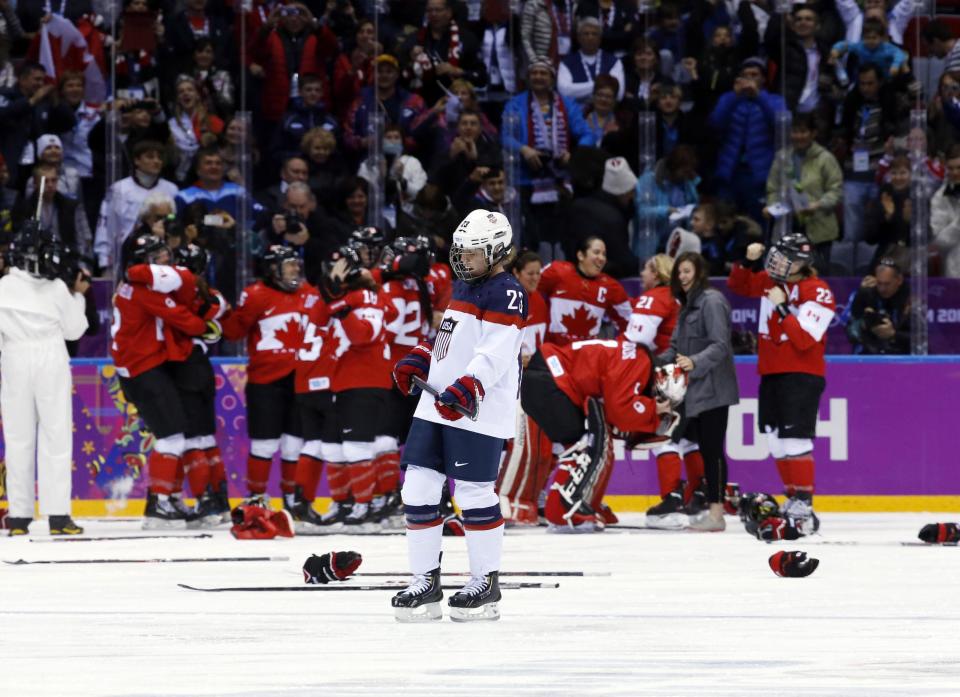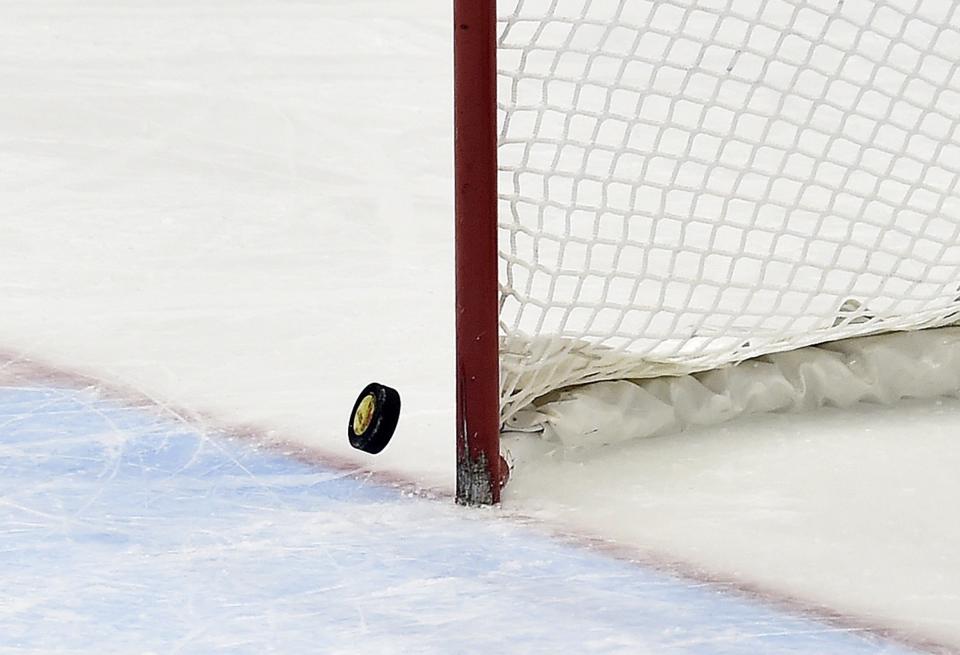Olympic Viewing: Another miracle on ice
Highlights from television coverage of the Sochi Olympics:
FORESHADOWING: Fine report from NBC's Tracy Wilson setting the stage for the last women figure skaters to compete Thursday, explaining how the routine planned by Russia's Adelina Sotnikova was technically more difficult than that of her rivals, which apparently became a key factor in her winning the gold medal over South Korea's Yuna Kim. Wilson also mentioned the "home-field advantage" of Sotnikova skating before a Russian audience.
WHERE'S COACH?: Wonderful video from camera operator following a thrilled Sotnikova running through the bowels of the arena to find her coach and anyone else to hug. We did half expect a crew from Publisher's Clearinghouse to pop up with a big check.
HEARTBREAK: Now a U.S. hockey team knows what it's like to be on the wrong side of a miracle on ice. The women's excruciating 3-2 overtime loss to Canada in the gold medal game will take a long time for its members to get over, and will long be remembered by those who watched it. "Nothing but gold waits for the winner," NBC's Mike "Doc" Emrick said as the sudden-death overtime began. He and NBC's team were like symphony conductors as the natural drama built, never getting in the way or calling attention to themselves. That's to be expected for them, but never taken for granted. What will most linger from this game are the images: a shot deflecting off an American player into the goal for a Canadian score; that puck skittering, skittering toward an empty net before hitting a post — when one inch to the right would have sealed an American victory; and, finally, the tears of those players upon realizing they'd lost a game they thought they had won.
NO EVENING LOVE: When the U.S. men's hockey team had its memorable shootout victory over Russia last weekend, NBC adroitly adjusted its prime-time schedule that night to lead with the story, replay the overtime sessions and interview people involved. The women's game Thursday was no less thrilling — Bob Costas called it an "epic" — and had higher stakes. Yet NBC opened its prime-time telecast with halfpipe semifinals before Costas did a voiceover report on the hockey game that lasted less than two minutes. No interviews. So what was the difference? Was it just because the United States lost? Was it because women athletes were competing instead of men? Both the U.S. and Canadian teams deserved better treatment for the benefit of people who were working and unable to see the game during the daytime.
STREAMS: That gold medal game was seen by an estimated 1.2 million people online, generating 35 million minutes of consumption, according to NBC. That beats an NBC Olympic record set the day before.
BURKE MEMORIAL: Cris Collinsworth did a sensitive interview with the parents of Canadian snowboarder Sarah Burke, who advocated on behalf of the women's halfpipe as an Olympic sport but then died of injuries from a training accident in 2012 before she had the chance to compete as an Olympian. Maddie Bowman, the American who won the gold medal in the halfpipe ski competition, graciously paid an unprompted tribute to Burke when interviewed after the competition. It seemed odd, then, that NBC missed the touching tribute of halfpipe workers forming a heart in Burke's honor, even when it appeared that some of the competitors on camera noticed it.
YOU KNOW YOU'RE GETTING CLOSE TO THE END: NBC found time to interrupt its prime-time telecast for a video of "The Voice" cast members singing.
EYE ON COSTAS: Bob Costas' infected eyes are starting to look better. They should be as good as new in time for his flight home from Sochi.
RATINGS: With the first night of women's figure skating and a gold medal run by Ted Ligety, NBC's prime-time telecast on Wednesday was seen by 20.2 million people, the Nielsen company said. That beats the corresponding nights for the last two Winter Olympics.
UPCOMING: The United States against Canada again in hockey, this time the men, in a semifinal Friday.
___
David Bauder can be reached at dbauder@ap.org or on Twitter@dbauder. His work can be found at http://bigstory.ap.org/content/david-bauder.



